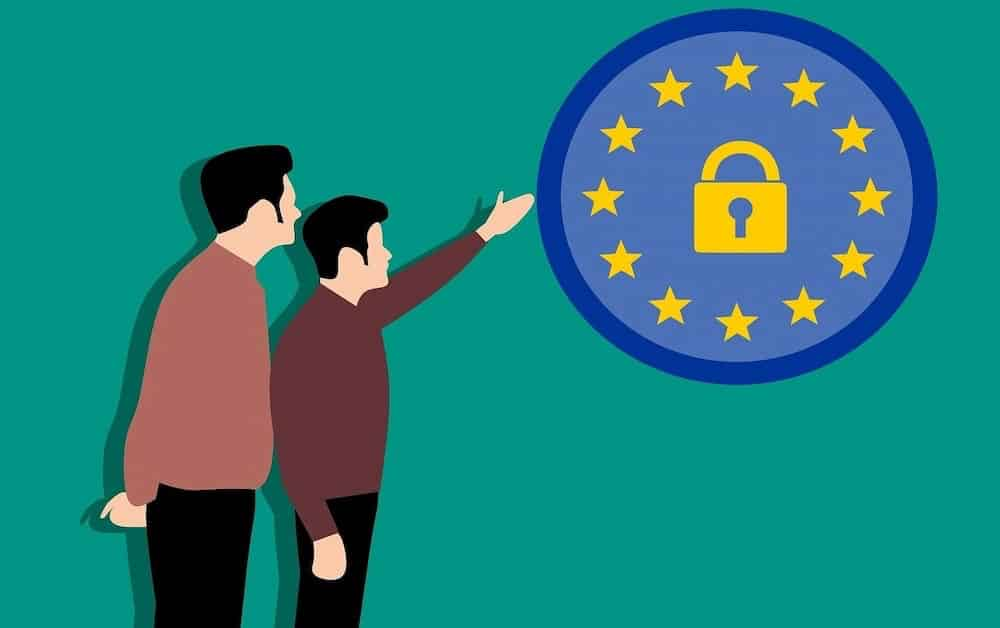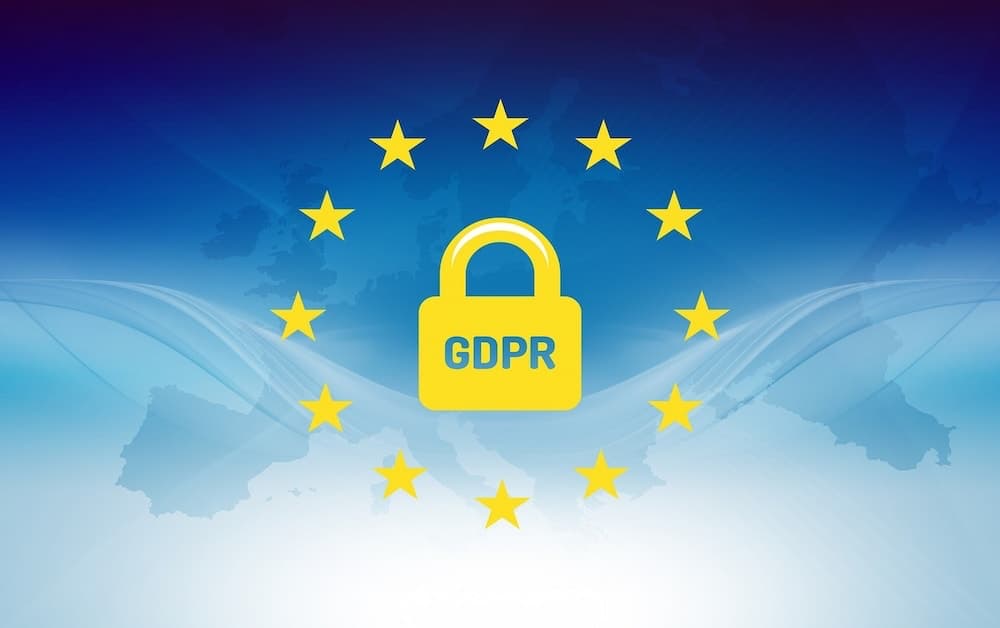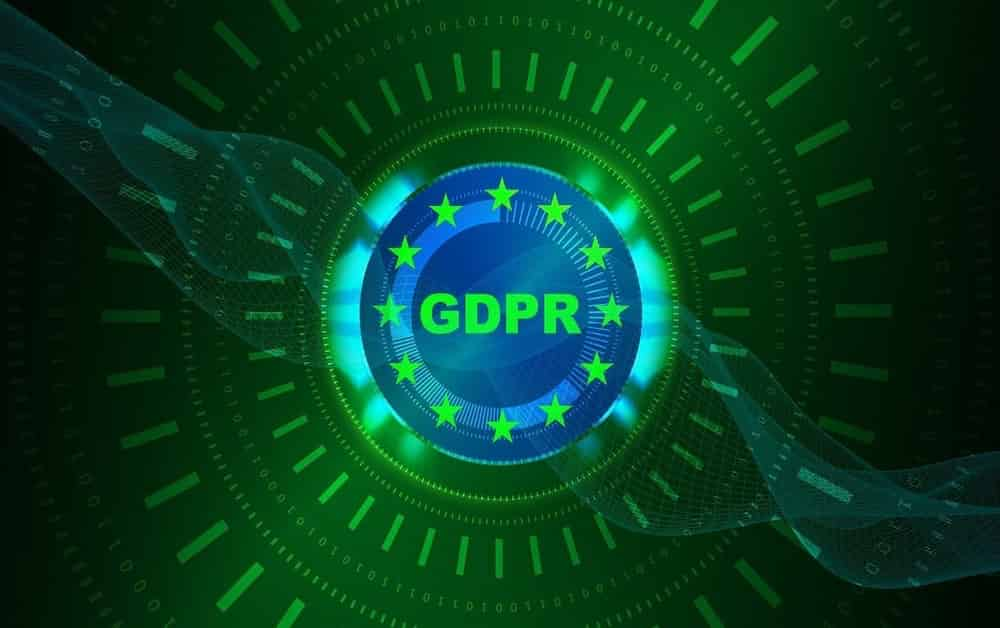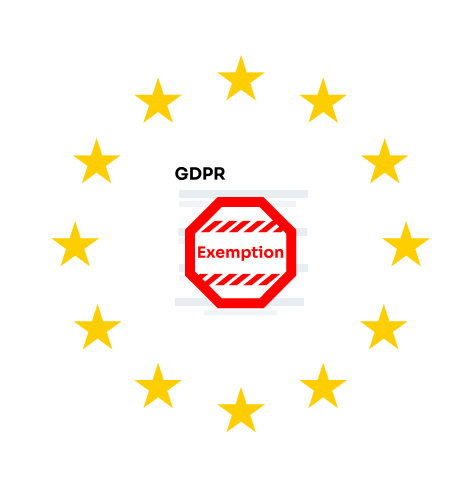GDPR Exemptions
With the rise of digital data processing and the EU’s General Data Protection Regulation (GDPR), personal data protection is at the top of organisations’ minds worldwide. However, GDPR acknowledges that not all situations need to be taken so seriously. GDPR exemptions are specific scenarios where certain data protection obligations don’t apply and where individual privacy rights can be balanced with public interest, national security, or other legitimate purposes. This includes both automated personal data processing and non-automated data handling, so GDPR is really broad. Knowing when these exemptions apply is key to GDPR compliance without putting unnecessary burdens on organizations. Here are seven key situations where exemptions might apply.
What are GDPR Exemptions?
GDPR exemptions allow organizations to get out of some of the strict personal data protection requirements under certain circumstances. Designed to balance individual rights with the need for lawful and beneficial processing, these exemptions cover situations like public interest, national security, and processing for historical research or journalistic purposes. Data controllers and data processors need to understand these exemptions to avoid unnecessary compliance costs while still respecting the principles of GDPR.
A deep understanding of GDPR exemptions helps organizations stay compliant by ensuring they know where the strict GDPR provisions don’t apply or are counterproductive. These exemptions are not a blanket permission but must be approached with caution, with documented assessments that can be produced to the data protection authorities if required. The data protection officer’s role is key in monitoring personal data processing and advising employees on data protection obligations so the organization can comply with GDPR.
#1 Processing Data Outside the EU
GDPR doesn’t apply to the processing of personal data outside the EU unless specific circumstances apply. If a data controller or processor is based in the EU or markets to EU residents, GDPR applies regardless of where the data is processed.
Organisations outside the EU processing data of EU citizens need to assess their data processing activities to determine their GDPR requirements. Data protection authorities can enforce GDPR in certain cases where EU residents’ personal data is involved, so organizations that offer services to the EU market need to be either compliant or exempt under specific circumstances.

#2 Data of Deceased Persons
GDPR only applies to living individuals so data of deceased persons is outside its scope. However, organizations handling data of deceased persons should still maintain accurate records and follow general data protection principles, especially for sensitive data.
This exemption requires organizations to have protocols for removing or securely archiving data of deceased individuals to avoid unintended processing. In practice, while GDPR doesn’t require compliance here, organizations often have internal policies to ensure the respectful handling of deceased individuals’ personal data.
#3 Data Processing in the Personal or Household Context
One of the GDPR exemptions applies to data processing in the personal or household context, such as managing contact details within a family or sharing data between friends. This exemption is to respect the privacy of individuals doing non-commercial or non-professional activities even if it involves personal data.
Organisations and individuals doing commercial or professional activities cannot invoke this exemption. So if personal data processing moves from a personal activity to a professional one, GDPR applies, including data protection impact assessments and data minimisation protocols. Organisations must also recognise and respect the data subject’s rights, such as the right to be informed, the right to erasure and the right to rectification.
#4 National Security and Criminal Prosecution
For national security, defence and criminal law purposes GDPR doesn’t apply. This exemption allows governments and related organisations to process personal data for preventing, investigating or prosecuting criminal offences without having to comply with GDPR’s requirements. The exemption also applies to data processing for public safety and emergency response purposes.
However, national security and criminal prosecution data processors must provide sufficient evidence to show how GDPR compliance would hinder their work. While exempt, the processing must still minimize data and take necessary security measures to prevent unauthorized access.

#5 Derogation for Special Processing Activities
GDPR allows for derogations – exceptions to the standard rules – for specific processing activities such as historical research, archiving, and statistical purposes. Member States can define the rules for these activities to allow flexibility while preserving data accuracy and public trust. Organizations doing research or archiving can use this exemption if they can demonstrate compliance with appropriate safeguards such as pseudonymization or anonymization of personal data.
Organizations must show that the data processing is in the public interest and doesn’t compromise individual rights. In most cases, data controllers or processors doing special processing activities must do a data protection impact assessment to demonstrate compliance and outline measures to protect data subjects’ rights. They must also ensure data portability so individuals can get and reuse their personal data across different services in a machine-readable format.
#6 Freedom of Expression and Information
GDPR recognizes the right to freedom of expression and information by allowing exemptions for journalistic, academic, artistic, or literary purposes. This allows journalists, researchers, and artists to process personal data without the same restrictions as commercial entities. To use this exemption, organizations must show that their processing is necessary for the intended expression or informational purpose.
Data protection authorities have the right to oversee GDPR compliance but often exercise discretion in journalistic and artistic cases to avoid infringing on freedom of expression. However, data subjects still have the right to protect their data under certain conditions to balance personal rights and public information access.
#7 Personal Data Processing for Public Interest
GDPR allows personal data to be processed for public interest purposes, which can include scientific research, public health initiatives, or statistical analysis. This exemption often applies to organisations involved in large-scale data analysis that benefits the public, such as health data collection for tracking disease outbreaks or environmental studies.
To use this exemption, organizations must show that the data processing is in the public interest and doesn’t harm data subjects. Appropriate safeguards such as pseudonymization or restricted data access are needed to protect data subjects’ privacy while allowing valuable research and analysis that benefits society.
Further Scenarios

Research and Statistical Purposes
The General Data Protection Regulation (GDPR) acknowledges the importance of research and statistical analysis and provides specific exemptions for these activities. Under Article 89, personal data can be processed for scientific or historical research purposes or statistical purposes without consent if certain conditions are met.
To use this exemption data controllers must show that the processing is necessary for the research or statistical purpose and the data is either anonymised or pseudonymised. This allows privacy of data subjects to be protected while valuable research can proceed.
This exemption relies on adherence to the core data protection principles of lawfulness, fairness, and transparency. Data controllers must implement appropriate safeguards, including data minimization, pseudonymization, and encryption, to protect the rights and freedoms of data subjects.
Also, a Data Protection Impact Assessment (DPIA) is key. The DPIA, as outlined in Article 35 of the GDPR, helps to assess the risks and benefits of the processing and identify measures to mitigate those risks. This assessment ensures the processing is GDPR compliant and addresses the specific challenges of processing personal data for research and statistical purposes.
By following these guidelines organisations can process personal data for research and statistical purposes responsibly and contribute to scientific progress and public knowledge while keeping data protection standards.
GDPR Exemptions for Businesses

Business Activities assessment for GDPR compliance
Organizations must carry out thorough assessments of their activities to see if GDPR exemptions apply. This assessment should cover the type of data being processed, the purpose of the processing, and the impact on data subjects. Documentation is key to showing the reasoning behind any exemption usage so as to ensure transparency to data protection authorities.
Regular reviews of processing activities will help businesses stay GDPR compliant even if they use exemptions. Staying up to date with data protection changes and keeping records of compliance assessments is key for businesses navigating the GDPR.
Compliance
To be GDPR compliant, organizations must implement technical and organizational measures to ensure the security and privacy of personal data. This includes:
Data Protection by Design and Default: Organisations must design and implement data processing systems that incorporate data protection principles from the start. This proactive approach means privacy is built into the processing.
Data Protection Impact Assessment (DPIA): A DPIA is key to identifying and mitigating risks of personal data processing. It helps organizations to assess the impact on data subjects and implement measures to protect their rights and freedoms.
Appropriate Safeguards: Organisations must implement safeguards such as encryption, access controls and data backup and recovery procedures to protect personal data. These measures prevent unauthorised access, disclosure, alteration or destruction of data.
Transparency and Information to Data Subjects: Transparency is a key principle of the GDPR. Organizations must inform data subjects about the processing of their personal data, including the purposes, categories of data processed, and their rights. This builds trust and ensures data subjects know how their data is being used.
Data Portability: GDPR gives data subjects the right to request their personal data be ported to another organization where technically possible. This gives individuals more control over their data and promotes competition between service providers.
Security of Personal Data: Organisations must implement measures to ensure the security of personal data and protect it against unauthorized access, disclosure, alteration, or destruction. This includes regular audits, security protocols, and employee training.
In addition to these requirements organisations must comply with the GDPR principles for processing personal data including lawfulness, fairness, transparency, purpose limitation, data minimisation, accuracy, storage limitation and integrity and confidentiality. By complying with these principles and requirements organisations can build trust with data subjects and keep their personal data intact.
In summary, the GDPR requires robust data protection measures. By following these guidelines, organizations can navigate the GDPR and keep data protection standards high.
Conclusion
Knowing GDPR exemptions is key for organizations that want to balance operational efficiency with compliance. By knowing when exemptions apply, organizations can process personal data for legitimate purposes without compromising data subjects’ rights. A documented approach with data protection impact assessments and regular compliance reviews will help businesses use exemptions responsibly.
Organisations will be investigated by data protection authorities if they use exemptions so compliance is key. Whether public interest, national security or personal exemptions are used they should be used with thought and data protection principles applied wherever possible.




